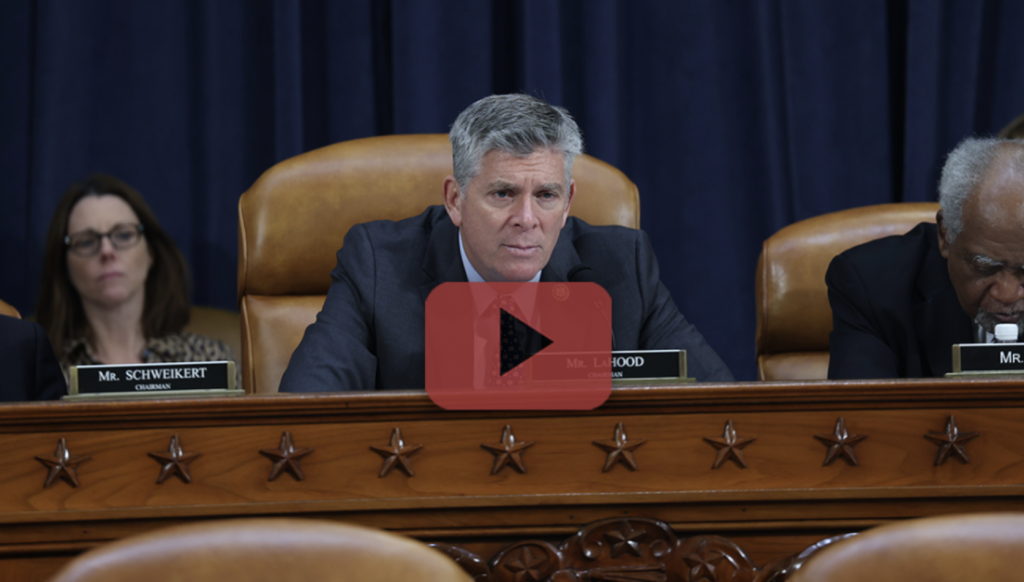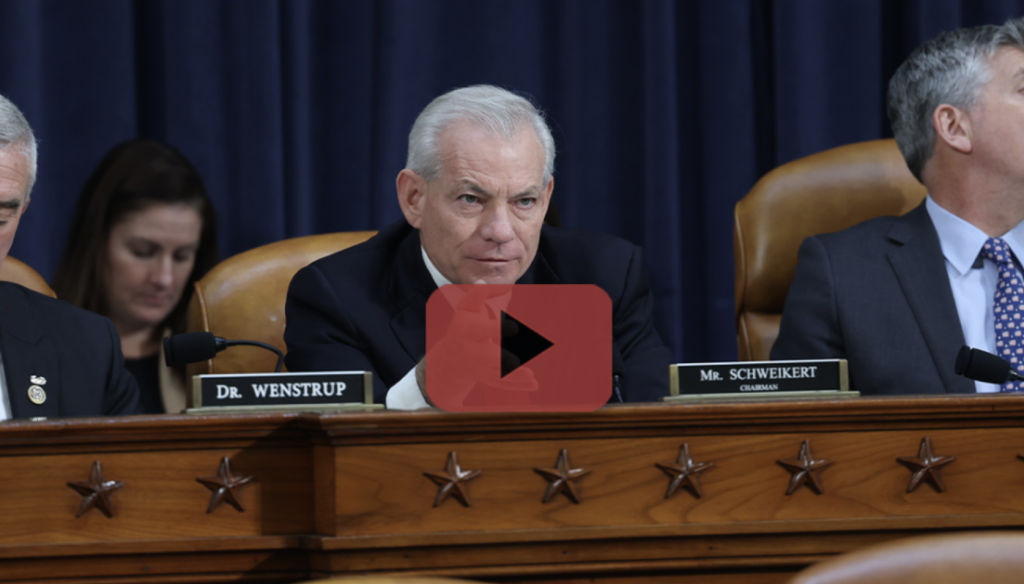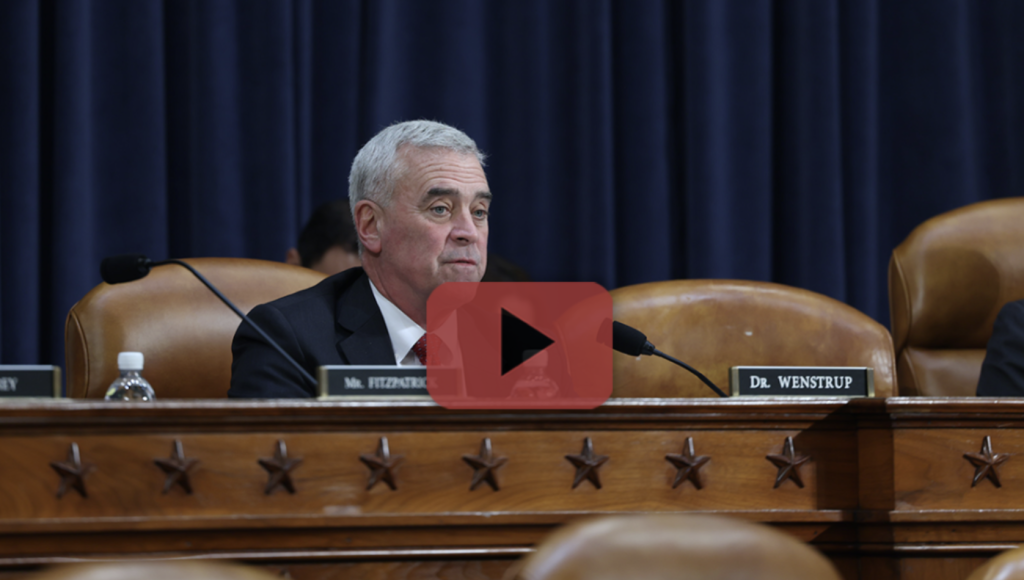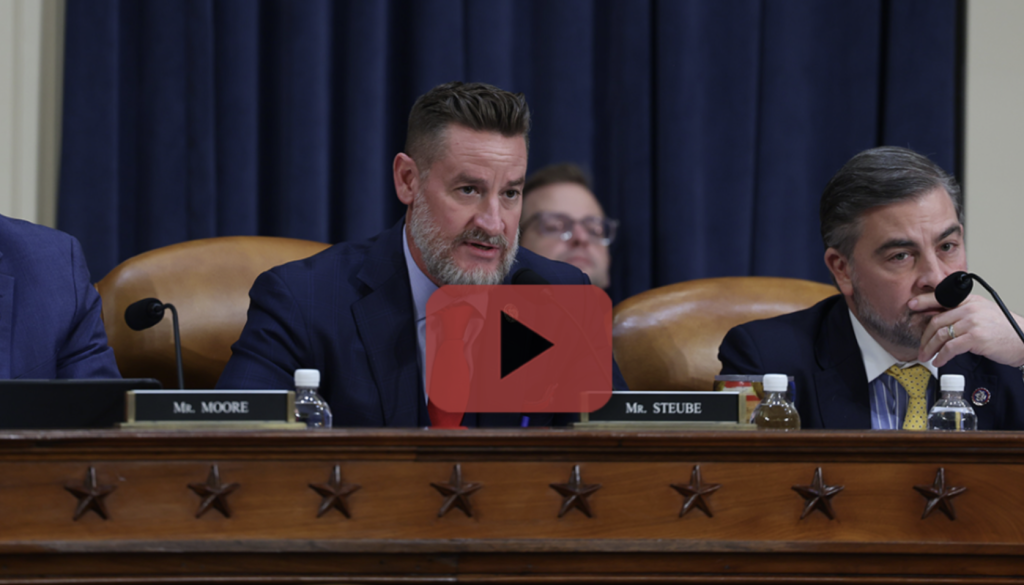Four Key Moments from Work and Welfare and Oversight Subcommittees Hearing on Child Support Enforcement
WASHINGTON, D.C. –State and tribal leaders, as well as tribal parents, testified during a joint hearing of the Ways and Means Work and Welfare Subcommittee and Oversight Subcommittee that a legislative fix is needed to ensure that states and tribes continue to have the enforcement tools necessary to collect child support on behalf of children and families.
Currently, at least forty-two states utilize contractors to administer their Child Support Enforcement programs and to access the Federal Tax Refund Offset Program, allowing states to garnish past-due child support payments from federal tax refunds and send them to custodial parents to help in raising their children. These crucial child support programs are one of the most cost-effective and vital programs for families, collecting nearly $5 for families for every $1 spent on administrative costs. The IRS recently announced a change to a long-standing policy that will prohibit states from using contractors to access the Federal Tax Refund Offset program – which could impact millions of parents in those states receiving child support, starting in October 2024.
“More Dependence on Other Government Programs”: IRS Policy Change Could Result in More Families on Assistance
Starting in October 2024, states that utilize contractors to administer child support enforcement programs will be unable to provide child support payments to families from federal tax refunds, unless they implement expensive mitigation plans. As Work & Welfare Subcommittee Chairman Darin LaHood (IL-16) highlighted, many families in these states could be forced to use other government programs to provide for their children.
Rep. LaHood: “Mr. Tribble, you pointed out in your testimony this is a vital part of the child support enforcement program serving families and non-custodial parents who are behind on their child support payment, or might not have the regular employment necessary for normal collections…If Illinois cannot come into compliance by October of 2024, our state could be cut off from the tax refund offset program. You mentioned that 44,000 families in Illinois receive support from the tax refund offset program, and this program is the only support for approximately 18,000 of these families in which they receive these payments each year. What would it mean to these families if this program were to be suspended or halted? And would these families potentially fall into poverty and increase the number of children and families dependent on our other government provided services, instead of their own families?”
Bryan Tribble, Illinois child support program administrator: “They absolutely would become more dependent on other government programs. There’s no two ways about it. The needs of the children aren’t going to change. They’re still going to have the exact same needs that they do. What’s different, is because of this change, on October 1, 2024, they’ll no longer be able to get those needs met by their own parents.”
Tribal Families Will Be Impacted by IRS Policy Change
For many families receiving child support, the federal tax refund program is the only child support they receive to help feed, clothe, and house their children. This is especially true from tribal child support enforcement programs. As Oversight Subcommittee Chairman David Schweikert (AZ-01) heard, the IRS policy change prohibiting private contractors from collecting back-due child support from federal tax refunds would also hurt tribal families. Tribes have a higher share of families whose only child support payments come from the federal tax refund program.
Rep. Schweikert: “If I was to understand the amount of population of non-custodial parents who have obligations for children…what percentage of support payments are going through this type of system?”
James Fleming, North Dakota child support program director: “Tax offset collections are a significant source of collections. They’re about a little over eight percent of the annual total. More than eight percent of the total annual collections come from offset. The state figures vary, but many of those do get their exclusive collection from tax offset. Our experience running the tribal consortium, interestingly, is that the percentage of tribal parents for whom offset is the only annual collection is actually greater than the state average.”
“Confidentiality is Number One”: IRS Suddenly Cares About Taxpayer Privacy, Ignoring Strong State Systems to Protect the Confidentiality of Parents and Children
Several witnesses who manage state or tribal child support systems testified their contractors receive rigorous training in protecting taxpayer information and the systems they implement have strong protocols already in place to protect personally identifiable information. A Wisconsin tribal leader shared with Rep. Brad Wenstrup (OH-02) the training measures her employees receive to keep private taxpayer information private.
Rep. Wenstrup: “The LCO [Lac Courte Oreilles] tribe and 59 other tribes across the country have provided child support services to thousands of families. Could you share with the committee why privacy and security are so important in the program and some of the security protocols your office follows to ensure this privacy is protected?”
Sue Smith, tribal child support program director: “Confidentiality is number one in our trainings. We follow…all the security measures. We have a required training every year that is put out by the IRS. Our IT, anyone from the legal counsel, the government employees that are involved with child support, they go through that training.”
Congress Must Act to Preserve a Strong Child Support Enforcement Program and Provide Access to Tribes
Unless Congress passes a legislative solution to address the IRS’s decision blocking contractors from collecting child support from federal tax refunds, both the federal government and states will face additional costs and families could lose their child support payments starting next year. Rep. Greg Steube (FL-17) asked the Illinois child support administrator what effect this would have on Illinois families receiving child support.
Rep. Steube: “The point is the IRS is not the agency we should put our faith or trust or money in to do what’s right. We need a legislative fix, not choosing to be at the mercy of the IRS, asking them to do the right thing. Mr. Tribble…this abrupt change in long standing policy by the IRS has not only placed the millions of families at risk of losing much needed support, but also puts the state agencies responsible for administering the federal tax refund offset program at risk, as well. Can you speak to the impact this would have on your state program, as well as the children and families who rely on it, if this issue is not addressed by Congress?”
Bryan Tribble, Illinois child support program administrator: “This would be pulling $65 million out of the homes of Illinois families. This would be 18,000 families who today are receiving support, and the only type of support that they’ll receive during the course of the year, now will receive nothing. This is huge. This would be a huge detriment to every family in our state who is a part of the child support program.”




